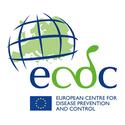In short
Infections caused by bacteria can be treated with antibiotics. If these medicines are used regularly, unnecessarily (e.g. for a viral infection) or incorrectly (e.g. a course of antibiotics is stopped too early and/or the remainder is used later), bacteria can become ‘resistant’. If you get an infection with such resistant bacteria, it is possible that antibiotics will no longer help. Consequently, you can become severely ill, resulting in more hospital admissions, a longer period of illness and sometimes even death.
The ‘European Antimicrobial Resistance Surveillance Network’ (EARS-NET) follows the development of acquired antimicrobial resistance in people at European level. Sciensano organizes the EARS-NET surveillance in Belgium.
Project description
EARS-Net follows the development of antimicrobial resistance in positive cultures of human origin. That is done using results that clinical laboratories in Belgium communicate to Sciensano annually in a standardized format. Sciensano then reports to the European Center for Disease Prevention and Control (ECDC) and the World Health Organization (WHO). To ensure that European and Belgian results remain as comparable as possible, we limit the results to those of positive cultures of frequently occurring bacterial pathogens from blood, cerebrospinal fluid (EU-countries) and urine (specifically for BE).
Thanks to this European collaboration for the monitoring of antimicrobial resistance, Sciensano can evaluate the Belgian antibiotics policy and amend it where necessary, based on objective data.
How to participate in the EARS-BE surveillance.
Do you want to participate in the EARS-BE 2023 surveillance as a clinical laboratory? In the datacall 2023 you will find:
- a detailed description of this surveillance
- instructions for creating and sending EARS-BE 2023 data (inclusion criteria and data definition)
- the analysis and reporting method.
To participate, please send the Participation form filled-in to amr_surv@sciensano.be. Upon reception of your participation form, you will receive a secure link to transfer your data.
EARS-BE 2023 data can be submitted up to and including 31 May 2024.
Laboratories reporting EARS-BE 2023 data are invited to participate free of charge in the annual ECDC external quality assessment (EQA).
To participate in the EQA, please email amr_surv@sciensano.be with the details of the contact person for the EQA before 30 April 2024.
Results
Each year, we publish various reports within the context of the EARS-BE surveillance. The statistical report shows annual reference results in tabular and graphic form. The descriptive report provides clarification on and an interpretation of these results. In addition, clinical laboratories that have participated in the surveillance receive a feedback report containing the results for their laboratory in comparison to the national situation over the last 10 years.
You can find an overview of the most recent reports below.
National reports
- EARS-BE 2021: statistical report
- EARS-BE 2020: statistical report
- EARS-BE 2019: statistical report
- EARS-BE 2018: statistical report
- EARS-BE 2017: statistical report
- EARS-BE 2021: descriptive report
- EARS-BE 2020: descriptive report
- EARS-BE 2019: descriptive report
- EARS-BE 2018: descriptive report
- EARS-BE 2017: descriptive report
- EARS-BE 2016: descriptive report
Feedback reports for participating laboratories
Based on the feedback reports, the participating laboratories gain an insight into the prevalence of antibiotic resistance according to the main markers as measured by the laboratory over the past year and how this compares to the past and national distribution.
The laboratory uses this feedback report to validate its annual EARS-BE entry and thus contribute to a high-quality national database. The report also makes it possible for the laboratory to follow up on antimicrobial resistance within the care institution (hospital or other associated care providers).
We send these feedback reports to the designated contact people at the laboratories. Please contact the EARS-BE project leader if you want to receive these reports as the designated contact person for your laboratory.
In this guide you will find more information on interpreting the results in the EARS-BE feedback report.
Sciensano's project investigator(s):
Service(s) working on this project
Partners





